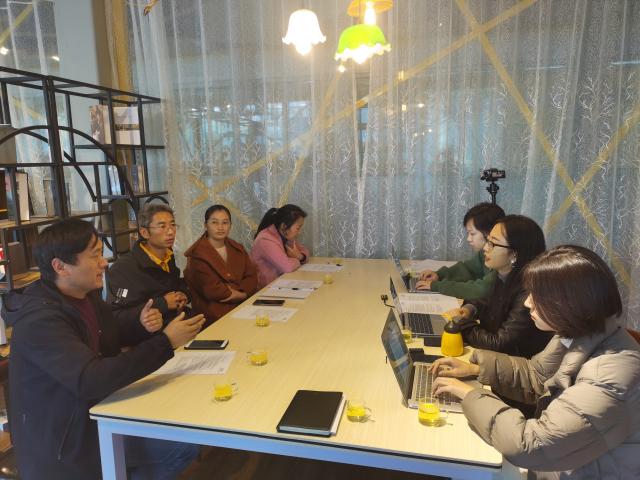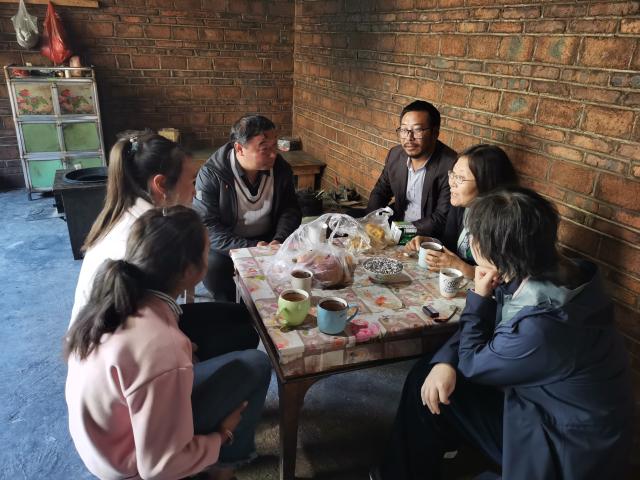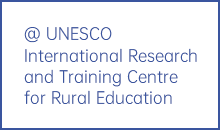Application of Information and Communications Technology (ICT) in education plays an inevitable role in inclusive, equitable and qualified education. In 2015, the United Nations put forward 17 sustainable development goals (SDGs). ICT for rural education is closely related to major SDGs such as quality education (ensuring inclusive and equitable quality education and promoting lifelong learning opportunities for all), no poverty (ending poverty in all its forms everywhere), and partnerships (strengthening the means of implementation and revitalize the global partnership for sustainable development). On the road of global transformation and sustainable development, ICT will become a key "booster".
ICT in rural education is one of UNESCO INRULED’s main work areas. From October 27 to October 31 and November 9 to November 15 in 2020, research groups of UNESCO INRULED went to Suichuan County, Jiangxi Province and Yulong Naxi Autonomous County, Yunan Province to investigate the development of ICT in rural education with the following three purposes: (1) find out the actual situation of ICT construction and application in primary and middle schools; (2) evaluate the effects of the implementation of the “three classes” project in rural education; (3) learn about local education bureau’s ideas and plans about ICT in rural education. Based on the research, it is hoped that the role, value and challenges of ICT in rural education could be sorted out.

Interview with teachers of No.1 Middle School, Yulong County

Teacher using online teaching resources in Baisha Primary School, Yulong county
Aiming to comprehensively outline the situation of ICT in rural education, the research team adopted a mixed research method, combining interviews with questionnaires. The research group to Suichuan was led by Prof. Zeng Xiaodong, Executive Director of the UNESCO INRULED and Prof. Li Baoping, Deputy Dean of INRULED, and the research group to Yulong was led by Deputy Deans of the Centre Prof. Sang Guoyuan and Prof. Zhang Lili. Each research group conducted a field investigation of 5 and 7 days. By interviewing the local education bureau and related duty officers , the team learned about the layout, financial input, infrastructure construction and online teaching plannings during the COVID-19 pandemic. By interviewing local teachers and distributing and collecting questionnaires in several junior high schools, central primary schools and teaching points, the team learned information on issues such as the ICT facilities in schools, teachers’ use of ICT in education and the implementation of online teaching during the COVID-19 pandemic.
While in Yulong county, the research team also took this opportunity to go to three ethnic minority villages for pre-research on women and rural community development. By visiting ethnic minority women and village committees in those villages, experience was gathered for the research and project on gender equality and female leadership in the 2021 agenda of UNESCO INRULED.

Interviewing Lisu minority women in Liming Village, Yulong County
This research received strong supported by the local education bureau of Suichuan county and Yulong County. The research results suggested both counties had made great practices in promoting ICT in rural education, such as the assessment mechanism for ICT development. Meanwhile, the challenges in terms of the coverage of ICT hardware and software and their adaptations still exist.
Additionally, this research will be a part of the Report on ICT application in China’s Rural Education, to be published on the international seminar on Technological Progress Promotes the Quality of Rural Education, co-hosted by UNESCO INRULED and UNESCO Institute for Information Technologies for Education (UNESCO IITE) on January 16 -17, 2021.
Translator: Peiqi,ZHU
Reviewer: Yuanan,FANG













